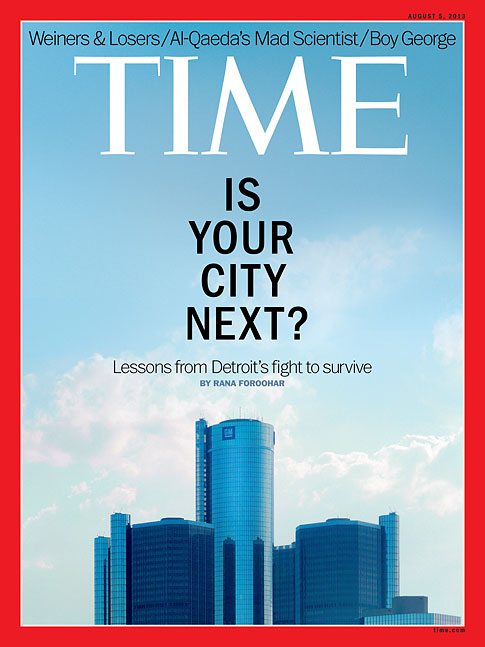
(2 of 6)
But city finances are not the same thing as city economies. In much of the country, unemployment is ticking down, tax receipts are up, and the property market, a huge generator of local income, is starting to recover. Detroit is going bankrupt at a time when it actually has a viable plan for growth, under the leadership of Mayor Dave Bing, with businesses relocating downtown, riverfront areas being redeveloped and medical facilities expanding. Chicago is at the forefront of some of the country's most innovative experiments in education reform, private-public partnerships and alternative-energy investment. Meanwhile, other cities are thinking and working outside the box, from Providence, R.I. (crafting compromises with public employees to reduce long-term liabilities), to Miami (funding infrastructure projects with private consortiums instead of public debt). "Cities are starting to take control of their economic future," says Bruce Katz, director of the Brookings Institution's Metropolitan Policy Program and author of the recent book The Metropolitan Revolution, which looks at a coming shift in regional growth models. "They aren't waiting for Washington."
It may not be much consolation to the people of Detroit or the other cities that must get their finances in order. Battles are already under way to decide if bankruptcy will allow Detroit to escape its pension commitments and turn away creditors. Promises, it must be said, will be broken; the questions now are which ones and how badly. And everyone is watching: "If Detroit manages to wiggle out of its pension liabilities, then other cities may start to think bankruptcy isn't a bad idea," says Paul Dales, senior U.S. economist at Capital Economics. On the other hand, if Detroit's bankruptcy results in years of court battles without clear winners, other cities may find settlement and compromise a more appealing prospect than default.
Either way, Detroit is making it impossible to ignore the financial issues holding cities back, and that can help everyone. "You don't have a Sputnik moment without some sort of very visible catalyst," says Mohamed El-Erian, CEO of Pimco, the world's largest bond-investment company. "Detroit could be it for America's cities."
Extreme Failure
It must be said that detroit is singular among large U.S. cities in terms of its extreme combination of continual, precipitous decline, civic mismanagement, corruption and systemic labor issues. Most big cities have those issues, but few have had so many for so long. They have contributed to a massive population exodus (Detroit went from 1.85 million residents in 1950 to an estimated 701,475 today), making it nearly impossible for the Motor City to jump-start growth. Half the city's property owners don't pay taxes, according to the Detroit News, some because they've simply abandoned their still underwater homes. Too few can afford to buy, even at rock-bottom prices, since unemployment has tripled since 2000.
For many residents, safety is a more pressing concern than housing. The homicide rate is the highest it's been in nearly 40 years. The police officers who are still on the payroll take an average of 58 minutes to answer calls, compared with 11 minutes nationally. Only a third of the city's ambulances still function. It's hard to feel secure when your house is surrounded by vacant lots.
